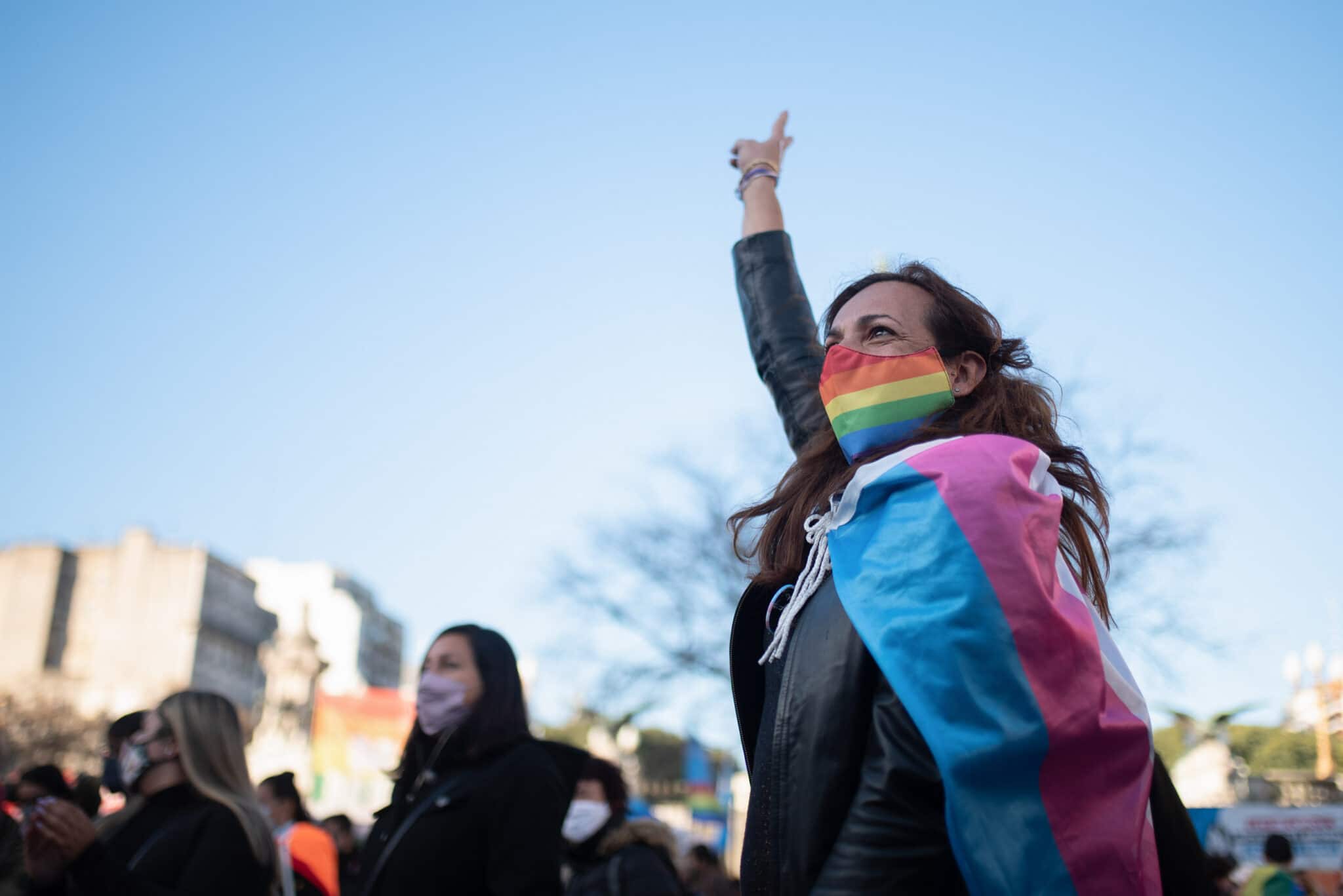Argentina’s president just made gender-neutral passports a reality for non-binary citizens. (Manuel Cortina/SOPA Images/LightRocket via Getty Images)
Argentina made history in July as the first country in Latin America to legally recognise non-binary people – but people issued with documents showing their gender as ‘X’ say they have been left in a legal limbo.
Non-binary people in Argentina trying to access essential public services, like their COVID vaccinations, health insurance, tax records and digital citizen profile, have found that the current systems don’t recognise their new national ID cards (DNIs).
National agencies in Argentina had until 18 November to update their systems to make them accessible to those with the new third gender category, but failed to meet this deadline, and as a result the computer software still doesn’t recognise ‘X’ gender markers,
“We need an ID because it’s the key to access a lot of our human rights,” Valentine Luy Machado, a non-binary activist from the Todes con DNI campaign group, told the Buenos Aires Times. “Well, ‘Here’s your key, but this doesn’t open any doors.’ There’s a lot to fix before we get like an ID, just like that.”
Machado added: “Anything that requires me to log in with my ID number and my ‘sex’, I can’t access any more. Even the National Registry of People (RENAPER) that carried out this measure – they issued a third gender on the ID. And yet, in order to log into their website, you have to choose one of the two binary sexes.”
Machado was one of the first non-binary Argentinians to receive a DNI with an ‘X’ marker, at a ceremony in which president Alberto Fernández gave a speech to LGBT+ organisations about the importance of the move to legally recognise non-binary identities.
“Between what is ideal and what is possible, let’s go with what is possible because every day we are closer to the ideal,” Fernández said. “We have to open our minds. There are other identities besides men and women that have always existed, but before they hid them.”
The ‘X’ marker was introduced, according to the decree published in Argentina’s official gazette, or the Boletín Oficial de la República Argentina, for any Argentinian who “does not feel understood under the male/female binary”.
“The ideal will be when all of us are just who we are and no one cares about people’s gender,” Fernández said, adding that there are a “thousand ways to love, be loved and be happy”.
Argentina made history by legally recognising non-binary identities
Argentina joined a growing number of countries that have adopted more inclusive national identity systems, including Canada, New Zealand, India and soon the US.
Under Argentina’s National Identity Law, brought in in 2012, all citizens are supposed to be guaranteed a national ID that accurately reflects that gender identity. Trans and non-binary activists argued that this should have resulted in the gender field being left open so they could describe their gender themselves, and the sex marker on ID cards becoming optional.
But the government instead chose to add a third option, ‘X’, to the sex marker field along with male and female. It’s not yet known how many people are affected by the resulting legal limbo.
“We wish it had been done the other way around, updating the systems first and then giving us the plastic card because I now have two essentially useless DNIs,” said Machado. “It’s like we’re breaking the system, but they really broke it themselves.”
